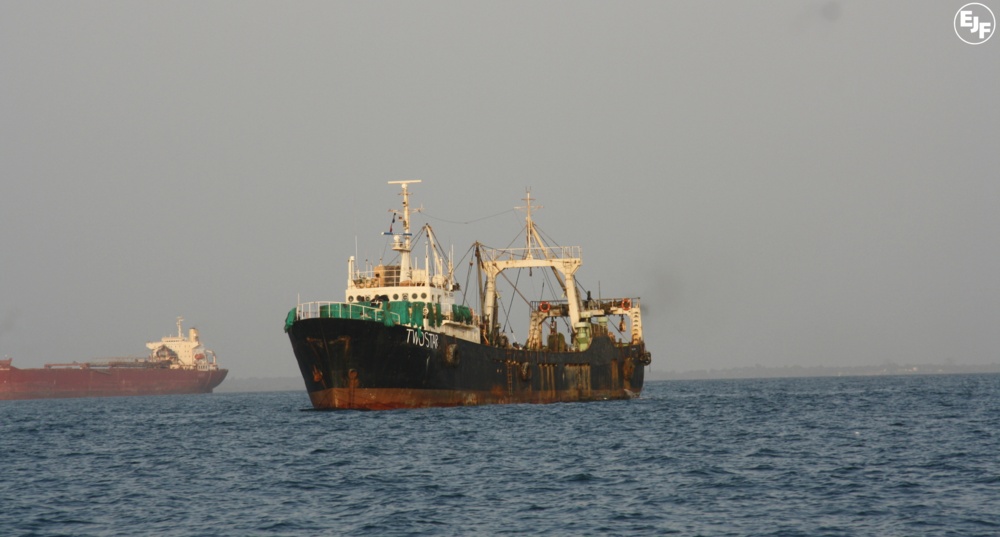
Sierra Leone meeting signals progress towards combating pirate fishing
Delegates assemble to discuss IUU ‘pirate’ fishing in West Africa at meeting co-hosted by EJF
Representatives from around the world met in Freetown today to discuss the long term future of Sierra Leone and Liberia’s fisheries. Delegates, including Sierra Leone’s President
Ernest Bai Koroma, discussed practical measures to stop ‘pirate’ fishing including strengthening the legal framework and mounting a robust monitoring, control and surveillance
(MCS) programme.
West Africa has some of the highest rates of Illegal, unreported and unregulated (IUU) fishing in the world, having severe effects upon the country’s food security, economy and marine environment.
The meeting, hosted by EJF in partnership with The Ministry of Fisheries and Marine Resources, was supported by the EU, Stop Illegal Fishing, the NEPAD Partnership for African Fisheries, and the United Nations Food and Agriculture Organization (FAO). Delegates included artisanal fishers from Sierra Leone and Liberia, government representatives, local and international conservation organisations and international institutions.
The meeting follows yesterday’s announcement that Sierra Leone is ending the sale of Flags of Convenience in the fight against IUU ‘Pirate’ Fishing.
What is IUU Fishing?
IUU Fishing is the term given to any fishing activity that contravenes national or international laws, such as: using banned fishing gears; targeting-protected species; or operating with out a licence. IUU vessels in West Africa disproportionately use destructive and unselective fishing gears; encroach in areas reserved for artisanal fishers; and have been reported to deliberately target poor local fishermen, ramming canoes and cutting the nets and lines which form the basis of their livelihood.
The Impacts of IUU Fishing in Sierra Leone
Fishing is a crucial economic and social activity in West Africa, and specifically benefits women who process and sell the fish.
IUU fishing in Sierra Leone may now account for 26% of the total fish catch, contributing heavily to overfishing. Local fishers consistently report that the extent of these illegal
operations is growing, having significant impacts on the environment and food security. Anecdotal reports suggest that the number and size of fish being caught is declining -
indicating juvenile fish needed to replenish stocks are now being caught. Many fishing communities are struggling to survive. Depleted fish stocks threaten the ability of fishers to
feed their families and sustain incomes. In Sierra Leone itself, around 30,000 artisanal fishers and 200,000 ancillary workers are engaged in traditional fish capture, processing and
trade.
Fisheries represent 10% of Sierra Leone’s GDP, income vital for the development of one of the poorest countries in the world – ranked 180 by the United Nations Human Development Index. IUU vessels, by avoiding taxes, regulations and by competing with local fishers are effectively stealing food from some of the world’s poorest people.
EJF’s Work in Sierra Leone
EJF’s long term work in Sierra Leone has involved working closely with the national navy, identifying and confiscating IUU vessels, and working with artisanal fishers, including providing them with a patrol boat which also serves as a hospital boat. EJF has also conducted significant research into the impacts of IUU fishing on local communities, socio- economic surveys and research into the possibility of establishing a Marine Protected Area (MPA).
SIGN UP FOR OUR EMAILS AND STAY UP TO DATE WITH EJF